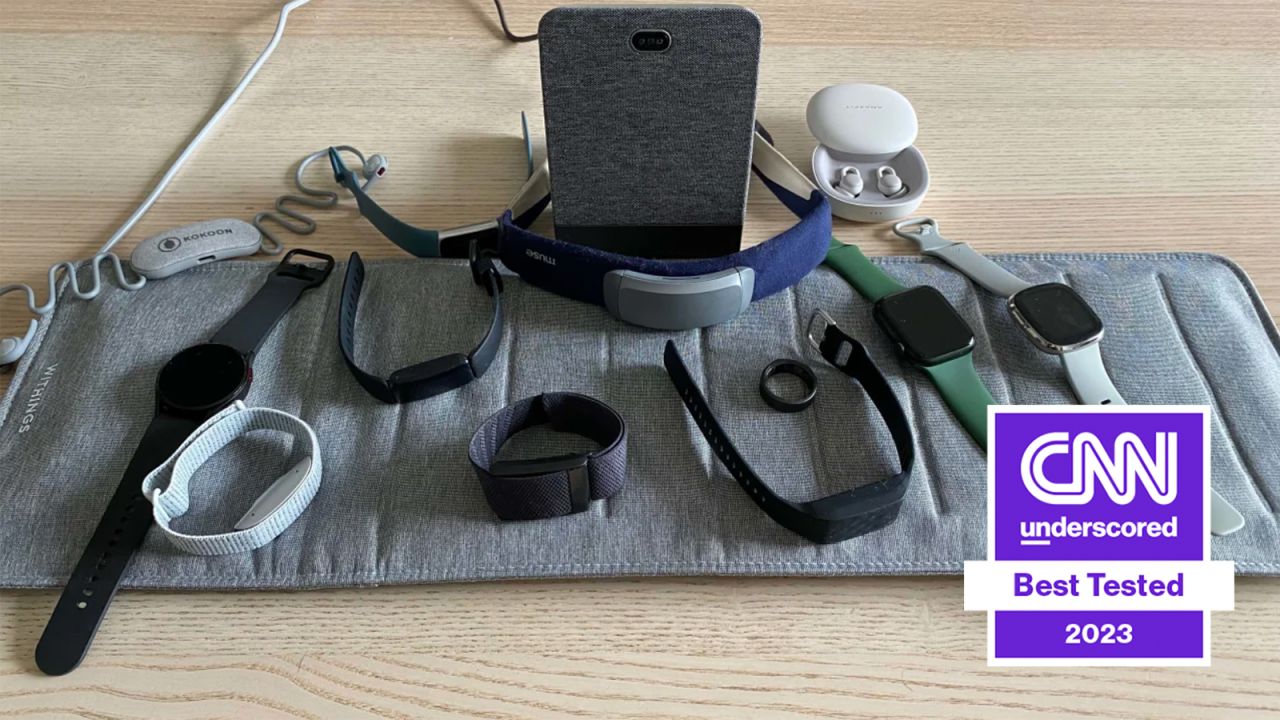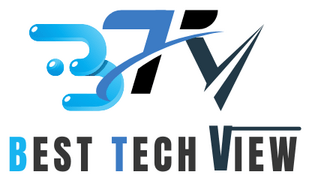Sleep trackers for seniors help monitor sleep patterns and improve overall health. They provide valuable insights into sleep quality and duration.
Sleep is key for feeling good, especially as we get older. As we age, our sleep habits can change, causing health problems. Sleep trackers help by monitoring our sleep, heart rate, and detecting any sleep issues.
Seniors can use this data to improve their sleep habits. Many sleep trackers are easy to use and comfortable. They also connect with smartphones, making tracking easy.
Good sleep can boost mood, memory, and energy. Getting a sleep tracker can really make a difference in a senior’s life.
Getting Started With Sleep Trackers for Seniors
Sleep trackers are devices that monitor sleep patterns. They provide insights into sleep quality. These tools are especially helpful for seniors. Understanding sleep patterns can improve overall health.
Benefits For Seniors
Sleep trackers offer many benefits for seniors. Here are some key advantages:
- Improved Sleep Quality: Spot problems like waking up too often.
- Health Monitoring: Track heart rate and breathing while you sleep.
- Personalized Insights: Get tips based on your sleep data.
Types Of Sleep Trackers
There are different types of sleep trackers available. Each has unique features:
| Type | Description |
|---|---|
| Wearable Trackers | These are worn on the wrist. They monitor sleep and daily activities. |
| Non-Wearable Trackers | These are placed under the mattress. They track sleep without contact. |
| Smartphone Apps | These apps use phone sensors. They provide basic sleep tracking. |

Credit: www.cnn.com
Key Features To Look For
Finding the right sleep tracker for seniors can be challenging. There are many options available, but some key features stand out. Let’s explore the most important aspects to consider.
Ease Of Use
Seniors need a device that is simple to operate. Look for large buttons and clear instructions. A user-friendly interface is essential. Consider devices with a single-button function. This minimizes confusion.
- Large display for easy reading
- Simple controls for hassle-free operation
- Clear, easy-to-understand instructions
Accuracy And Reliability
The accuracy of the sleep tracker is crucial. It should provide reliable data on sleep patterns. Look for features that track heart rate and breathing. These can give a clearer picture of sleep quality.
| Feature | Importance |
|---|---|
| Heart rate monitoring | High |
| Breathing pattern analysis | High |
| Movement detection | Medium |
Consistency in data reporting is key. Reliable trackers help in making informed decisions about health.
How Sleep Trackers Work
Understanding how sleep trackers work can help seniors improve their sleep. These devices use advanced technology to monitor and analyze sleep patterns.
Sensors And Technology
Sleep trackers use various sensors to gather data. Common sensors include accelerometers, heart rate monitors, and temperature sensors. These sensors detect movements, heart rate, and body temperature changes. The data helps determine sleep stages and quality.
Most trackers are wearable devices like wristbands or smartwatches. Some are non-wearable and placed under the mattress. These devices connect to smartphones or computers via Bluetooth or Wi-Fi.
| Sensor Type | Function |
|---|---|
| Accelerometer | Tracks movement |
| Heart Rate Monitor | Monitors heart rate |
| Temperature Sensor | Records body temperature |
Data Analysis
After collecting data, the device analyzes it using algorithms. These algorithms identify sleep stages such as light, deep, and REM sleep. The analysis provides insights into sleep quality and duration.
Many trackers offer detailed sleep reports. These reports include visual charts and graphs. Seniors can easily understand their sleep patterns and identify any issues.
- Light Sleep: Easy to wake up
- Deep Sleep: Hard to wake up
- REM Sleep: Dreaming stage
Some trackers provide personalized sleep tips. These tips can help seniors improve their sleep habits. Consistent use of sleep trackers can lead to better sleep quality.

Credit: www.nytimes.com
Integrating With Health Apps
Sleep trackers can be a game-changer for seniors. These devices offer valuable insights into sleep patterns and overall health. One of the standout features is their ability to integrate with health apps. This integration provides seniors with a comprehensive view of their well-being.
Compatibility
Many sleep trackers work seamlessly with popular health apps. This ensures that seniors can easily sync their data. Compatibility with apps like Apple Health and Google Fit is common. Some sleep trackers also support third-party apps, enhancing functionality.
- Apple Health: A popular choice for iOS users.
- Google Fit: Ideal for Android users.
- Third-party apps: Offers additional features and customization.
Additional Health Metrics
Integration with health apps allows tracking of more than just sleep. Seniors can monitor various health metrics in one place. This includes heart rate, physical activity, and calorie intake.
| Health Metric | Description |
|---|---|
| Heart Rate | Monitors beats per minute, important for cardiac health. |
| Physical Activity | Tracks daily steps and exercise routines. |
| Calorie Intake | Keeps a record of daily calorie consumption. |
This holistic approach helps seniors stay informed about their health. It enables better decision-making and promotes a healthier lifestyle. The integration of sleep trackers with health apps is truly beneficial.
Improving Sleep Quality
Sleep trackers can help seniors improve their sleep quality. These devices monitor various sleep metrics. By understanding these metrics, seniors can make informed changes. This can lead to better rest and overall health.
Identifying Sleep Patterns
Sleep trackers analyze sleep cycles. They track light, deep, and REM sleep stages. This information helps identify disruptive patterns.
For instance, they can show frequent awakenings. Knowing this can help pinpoint issues like sleep apnea or restless leg syndrome.
| Sleep Stage | Description |
|---|---|
| Light Sleep | Easily awakened, light rest |
| Deep Sleep | Restorative, hard to wake |
| REM Sleep | Dreaming, memory consolidation |
Recommendations And Tips
Adjusting sleep habits can improve sleep quality. Here are some tips:
- Consistent Schedule: Go to bed and wake up at the same time daily.
- Relax Before Bed: Try reading or gentle stretches.
- Limit Caffeine: Avoid caffeine in the afternoon and evening.
- Comfortable Environment: Ensure your bedroom is cool and dark.
Using a sleep tracker with these tips can lead to better sleep quality.
Addressing Common Concerns
Sleep trackers offer many benefits for seniors. Yet, some concerns need addressing. This section covers two main worries: privacy and security, and cost considerations.
Privacy And Security
Seniors often worry about their privacy. Sleep trackers collect sensitive data. This data includes sleep patterns and health metrics. It’s vital to know how this data is used.
Most sleep trackers use encryption. Encryption keeps your data safe. Only authorized parties can access it. Always read the privacy policy. Understand who can see your data.
Some sleep trackers share data with third parties. Ensure you know who these parties are. Opt for devices that keep your data private. Look for sleep trackers that offer anonymity.
Here’s a quick comparison:
| Sleep Tracker | Encryption | Data Sharing With Third Parties | Notes |
|---|---|---|---|
| Oura Ring Gen 4 | Yes | No (only with consent) | Offers strong privacy controls and GDPR compliance |
| Fitbit Charge 6 | Yes | Yes | Shares data with Google services unless opted out |
| Garmin Venu 3 | Yes | No | Data stored in Garmin Connect; no ad-based sharing |
| Whoop Strap 5.0 | Yes | No (with optional research opt-in) | Offers anonymous data contribution; secure user platform |
| Apple Watch Series 10 | Yes | No (default) | iCloud Health data is encrypted and user-controlled |
| Samsung Galaxy Watch 7 | Yes | Yes (limited to Samsung Health) | Some shared data is used for personalized recommendations |
Cost Considerations
The cost of sleep trackers varies. Some are very affordable. Others can be quite expensive. Consider your budget before purchasing.
Look for features you truly need. Some trackers offer basic features. These are usually cheaper. Others have advanced features. These can track more health metrics but cost more.
Here’s a quick price range overview:
| Type | Price Range |
|---|---|
| Basic | $20 – $50 |
| Advanced | $100 – $300 |
Check for warranty and customer support. These can save money in the long run. Also, consider battery life. Frequent charging can be a hassle.
Sometimes, the cost includes a subscription fee. This fee is for accessing extra features. Make sure to factor this into your budget.
Case Studies And Success Stories
Sleep trackers have become a game-changer for seniors. This section highlights real-life examples of seniors who have benefited from using sleep trackers. Their success stories show the positive outcomes of incorporating this technology into their lives.
Real-life Examples
John, 72: John struggled with insomnia for years. His sleep tracker identified irregular sleep patterns. It also alerted him to frequent awakenings. With this data, he consulted his doctor. Together, they adjusted his bedtime routine. John now enjoys a restful night’s sleep.
Mary, 68: Mary used to feel tired every morning. Her sleep tracker revealed she had sleep apnea. This prompted her to seek medical advice. She now uses a CPAP machine. Mary wakes up refreshed and energetic.
David, 75: David was concerned about his heart health. His sleep tracker monitored his heart rate during sleep. It detected fluctuations that he was unaware of. This information led him to visit a cardiologist. Early intervention helped him manage his condition effectively.
Positive Outcomes
Many seniors experience significant health improvements with sleep trackers. Here are some positive outcomes:
- Improved Sleep Quality: Seniors report fewer awakenings and longer sleep durations.
- Early Detection: Sleep trackers identify potential health issues early, leading to prompt treatment.
- Increased Energy Levels: Better sleep quality results in higher energy and activity levels during the day.
- Enhanced Mood: Good sleep contributes to a positive mood and overall well-being.
The table below summarizes these benefits:
| Benefit | Description |
|---|---|
| Improved Sleep Quality | Fewer awakenings, longer sleep durations |
| Early Detection | Identifies potential health issues early |
| Increased Energy Levels | Higher energy and activity levels during the day |
| Enhanced Mood | Positive mood and overall well-being |
These case studies and success stories highlight the transformative impact of sleep trackers for seniors. The benefits extend beyond better sleep. They contribute to overall health and quality of life.

Credit: www.nationalgeographic.com
Future Of Sleep Trackers
The future of sleep trackers looks exciting. These devices will soon offer more features. They will help seniors sleep better and stay healthy. Let’s explore the upcoming technologies and potential health benefits.
Upcoming Technologies
New sleep trackers will use advanced sensors. These sensors will measure more than just sleep patterns. They will track heart rate, breathing, and body movements.
AI will play a big role in sleep trackers. AI can analyze sleep data and provide personalized tips. These tips can help seniors improve their sleep quality.
Wearable devices will become more comfortable. They will be lightweight and easy to wear. This is important for seniors who want comfort and convenience.
Potential Health Benefits
- Improved Sleep Quality: Better sleep can improve overall health.
- Early Detection of Health Issues: Trackers can spot irregular patterns. This can help in the early diagnosis of sleep disorders.
- Personalized Sleep Tips: AI can offer tailored advice. This can help seniors adopt better sleep habits.
- Stress Reduction: Good sleep can lower stress levels.
- Enhanced Mental Health: Quality sleep can improve mood and cognitive functions.
Sleep trackers are evolving rapidly. They will soon offer more features and benefits. Seniors can look forward to a healthier future with better sleep.
Frequently Asked Questions
What Device Is Most Accurate For Sleep Tracking?
The most accurate device for sleep tracking is the Oura Ring. It offers precise data on sleep stages, heart rate, and body temperature.
Are Sleep Trackers Worth It?
Yes, sleep trackers can be worth it. They provide insights into sleep patterns and help improve sleep quality.
What Is The Best Non Wearable Sleep Tracker?
The Withings Sleep Analyzer is the best non-wearable sleep tracker. It offers accurate sleep cycle tracking and integrates with health apps.
Are There Any Free Sleep Trackers?
Yes, there are free sleep trackers available. Apps like Sleep Cycle, SleepScore, and Google Fit offer basic tracking features at no cost.
Conclusion
Sleep trackers offer significant benefits for seniors. They help improve sleep patterns and overall well-being. Easy-to-use devices track valuable health data. Investing in a sleep tracker can lead to better quality of life. Consider one today for a healthier, more restful night’s sleep.
Your senior years deserve the best rest possible.

A passionate tech blogger and the founder of Best Tech View, a dynamic platform dedicated to all things technology. With a keen interest in the tech, Ahmad strives to provide insightful and engaging content on the latest tech trends, and breakthroughs.
